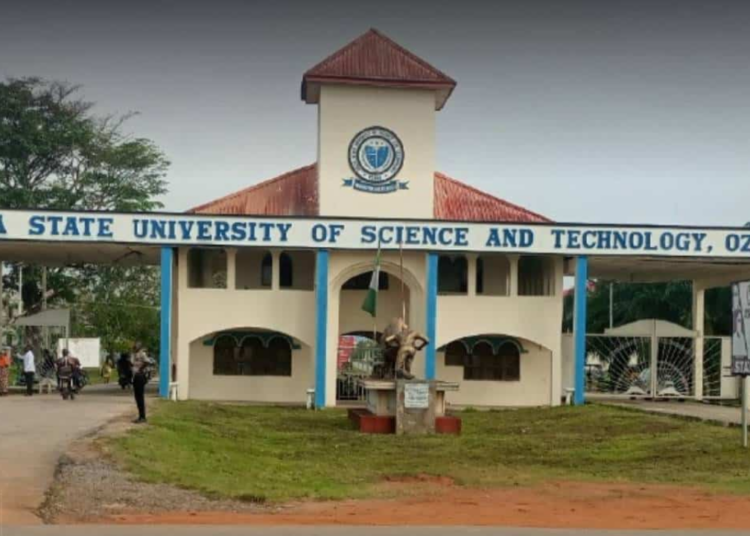While the quality of education in Nigeria is debased by several factors including poor infrastructure, inadequate budgetary allocation, inadequate or total absence of standard educational materials, among others, however, Delta State Government observed that the state was wasting huge resources in the three colleges of education located in Agbor, Warri, and Mosogar and converted them to university.
Prior to the conversion the colleges had a staff strength of 1,895 handling 2,888 students with wage bills of N457,570,402,76 monthly because most admission seekers in the state don’t want to go to college of education anymore.
That was why the state government advanced the reasons to convert the three higher institutions in the state to three universities.
However, amid the conversion, the citadel of learning in Delta State has witnessed a revamp amid renewed and concerted efforts by the state government.
From the primary to tertiary education level, Delta’s education sector has received a boost ending the tension that had ridden the sector in the past.
Before now, the educational system was characterised by factors that hinder students’ ability to learn, reduce teachers’ productivity, and consumes economic resources that could be better deployed elsewhere.
The climax of the well-focused attention to making the Delta state-owned higher institutions a shining example to other states culminated and led to the 100 per cent accreditation of courses offered in all the state-owned higher institutions.
The University of Delta, Agbor was first established as a College of Education in 1979 by the former Bendel State Government and with the creation of Delta State in 1991, the school became a college owned by Delta State Government.
Also, Dennis Osadebey University, Asaba was formerly Delta State University, Anwai Campus until it was converted to a full university by the Delta State Government.
In January 2021, Okowa of Delta State announced plans to convert Delta State University, Anwai Campus Asaba, and two other schools such as Delta State Polytechnic, Ozoro, and College of Education, Agbor into a full-fledged University.
More so, the Delta State University of Science and Technology, Ozoro was first established as a college of Agriculture which was turned into a Polytechnic on January 1, 2002, by law during the administration of James Ibori.
In January 2021, Delta State governor Ifeanyi Okowa announced plans to convert Delta State Polytechnic, Ozoro, and two other schools into a full-fledged University, the bills had their first reading during plenary at the Delta State House of Assembly on the 28th day of January 2021.
In February 2021, the bill for the three citadels of learning was passed into law after going through the house committee on education.
While signing the bill which was passed by the State House Assembly, Okowa said, “As the students of our technical education start to progress from the technical colleges to the polytechnics, they also have a chance of going further to the University of Science and Technology.”
On the other hand, secondary students in Delta State are moving en masse from private schools to government schools in the state.
Students of the Warri Model Technical College, Effurun, Delta State were on vacation when LEADERSHIP Weekend arrived last Saturday at what could unarguably pass off as a campus of a university.
The state-of-the-art edifices were initially what stirred interest for many in the school. That interest eventually overflowed for those who came in when they saw the infrastructure and other equipment provided for the school.
The Warri Model Technical College, Effurun is only one of nine model technical colleges established by the Okowa administration. Of the nine, three have already taken off fully in Asaba, Obiaruku, and Effurun. The others are in various stages of completion in Omadino, Irri, Akugbene, Oghareki, Kiagbodo, and Orerokpe.
Speaking to the visiting journalists, a tutor of the Model Technical College, Effurun, Nkwa Prince Anthony disclosed how the school has redirected social balance in the environment that has led many parents to withdraw their wards from private schools to the school.
According to him many of the parents were drawn to the finishing of the buildings scattered around the complex. He, however, went on to say that the parents were also further carried away by the state-of-the-art equipment provided for the school that grooms pupils in different sectors of science, technology, and crafts including carpentry, welding among others.
The establishment of the nine model technical colleges followed the government’s initial move in rehabilitating the six technical colleges it met on the ground.
All six in Sapele, Agbor, Kwale, Issele-Uku, Ofagbe, and Ogor were rehabilitated by the Okowa administration.
LEADERSHIP reports that the Okowa administration’s inclination to the establishment of the model and regular technical colleges is in line with the government’s inclination towards boosting the sciences.
That proclivity has been further crystalised with the establishment of the Delta State University of Science and Technology, Ozoro.
State officials told the visiting journalists that the university was conceived to absorb graduates of the various schools.
“These students coming out of the technical colleges have the option of either going to conventional universities or the Delta State University of Science and Technology where they can further equip themselves as innovators and entrepreneurs,” the official said.
Undeniably, one of the takeaways from the Okowa administration’s investments in technical education is the exquisite stadium at the Delta State University, Ozoro which was wholly built by the students of the institution.
The stadium according to state officials has regularly hosted tournaments within and outside the state, giving a fillip to the craving by the Okowa administration for technological development.
We’ve got the edge. Get real-time reports, breaking scoops, and exclusive angles delivered straight to your phone. Don’t settle for stale news. Join LEADERSHIP NEWS on WhatsApp for 24/7 updates →
Join Our WhatsApp Channel











